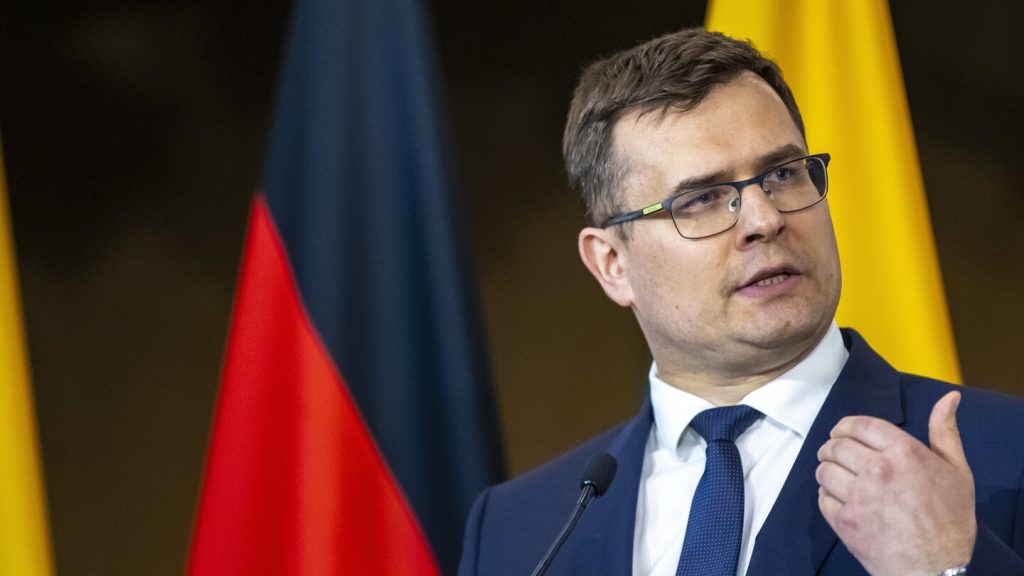European nations should not repeat the mistake of creating a barrier between them and President-elect Donald Trump, urged Lithuania’s defense minister Laurynas Kasčiūnas on Saturday. Kasčiūnas emphasized the importance of cooperation on issues of common interest with the new president, suggesting areas where Europe and Trump could work together. These include more investment in defense, European acquisition of American weapons, and cooperation on containing China and Iran. Kasčiūnas noted that building a moral wall against Trump in the past was not the correct approach and urged for a more cooperative relationship.
During his first term from 2017 to 2021, Trump pushed NATO’s European members to increase defense spending to the desired 2% of gross domestic product or more, and to rely less on U.S. military cover. This push has resulted in 23 NATO members expected to meet the 2% target this year, a significant increase from just three members a decade ago. Lithuania, in particular, has surpassed 2.5% with a goal of reaching 4%, exceeding the United States in defense spending. This highlights the progress made by European nations in meeting Trump’s demands for increased defense investment.
In the wake of Russia’s full-scale invasion of Ukraine in 2022, Europe’s defense industry managed to increase the output of some defense products. However, European countries still rely on the U.S. for certain aspects of their military capabilities and have donated weapons to Ukraine in response to the conflict. The International Institute for Strategic Studies report highlighted at the Prague event emphasized the European dependence on U.S. military support. Lithuania, which shares borders with Russia’s Kaliningrad exclave and Belarus, remains the largest buyer of U.S. arms among the Baltic states, showcasing the region’s reliance on American defense equipment.
The minister also discussed European Union sanctions on Iran and the divisive nature of Russia’s war against Ukraine. While urging for continued military aid to Ukraine and a rejection of Russian conditions for peace, Kasčiūnas highlighted the need for a just and credible peace agreement. Trump’s stance on Ukraine, aid to the country, and relationship with Russian President Vladimir Putin have been points of contention in European politics. Kasčiūnas stressed the importance of European unity in supporting Ukraine and not allowing Russia to dictate terms for peace, warning against a limited cease-fire that could benefit Russian troops.
Trump’s election campaign had raised concerns across Europe, with the potential for groundbreaking consequences on trade relations, NATO commitments, and other international issues. The threat of a trade war with the EU and a withdrawal of NATO commitments posed challenges for European nations. Kasčiūnas called for a constructive approach to engaging with Trump and finding common ground on important issues. The gathering in Prague focused on European and transatlantic military capabilities, highlighting the need for cooperation and strategic alignment between European nations and the incoming U.S. administration.














